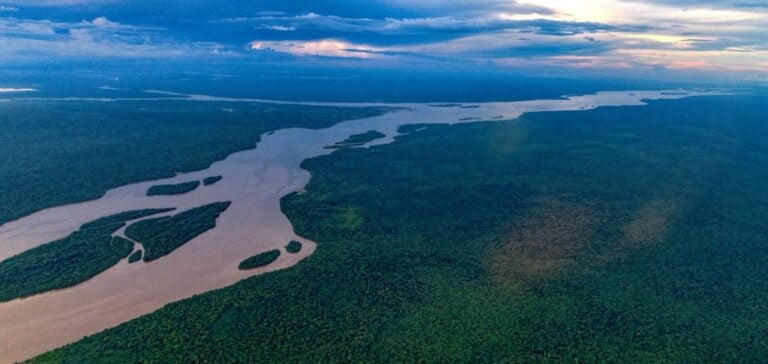The territorial dispute between Guyana and Venezuela has intensified following the inauguration of a military bridge by Caracas connecting San Martin de Turumban to Anacoco Island. This infrastructure, according to Guyana’s Ministry of Foreign Affairs, directly violates Guyana’s sovereignty over a region already marked by escalating political and economic tensions.
A Strategic Territory
Essequibo, a 160,000 km² territory administered by Guyana but claimed by Venezuela, has long been a focal point of friction between the two nations. The launch, in September 2023, of international bids for oil exploration by Guyana reignited Caracas’s claims, which view the region as a legitimate extension of its territory.
In 2024, Venezuela held a referendum to consolidate its grip on Essequibo, followed by the adoption of a law asserting its sovereignty. These unilateral actions were rejected by Georgetown, which bases its claims on the boundary established by an international arbitration court in Paris in 1899.
An Economic Dimension to the Dispute
The construction of the military bridge on Anacoco Island, recently inaugurated by Venezuelan authorities, is part of a broader strategy to showcase military strength. The island, home to a Venezuelan military base, is strategically located for the exploitation of natural resources, particularly oil.
Guyana, on the other hand, sees this development as an intimidation tactic aimed at disrupting its economic and energy projects in Essequibo. By summoning Venezuelan Ambassador Carlos Pérez, Georgetown aims to mobilize the international community to counter what it perceives as a dangerous escalation.
Geopolitical Impacts
This situation has raised concerns beyond the borders of the two countries. With stakes tied to energy security and regional stability, Essequibo is drawing the attention of international powers. Any escalation in the conflict could have repercussions on global energy markets and regional cooperation in South America.
Guyana, which has approximately 125,000 residents in this disputed region, continues to seek diplomatic and economic support to protect its interests, while Venezuela strengthens its historical claims.






















